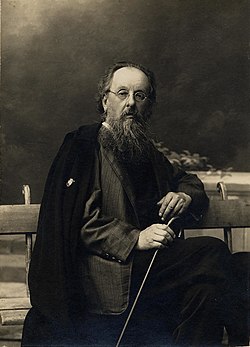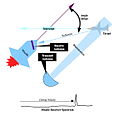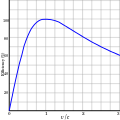The Rocketry Portal

A rocket (from Italian: rocchetto, lit. ''bobbin/spool'', and so named for its shape) is a vehicle that uses jet propulsion to accelerate without using any surrounding air. A rocket engine produces thrust by reaction to exhaust expelled at high speed. Rocket engines work entirely from propellant carried within the vehicle; therefore a rocket can fly in the vacuum of space. Rockets work more efficiently in a vacuum and incur a loss of thrust due to the opposing pressure of the atmosphere.
Multistage rockets are capable of attaining escape velocity from Earth and therefore can achieve unlimited maximum altitude. Compared with airbreathing engines, rockets are lightweight and powerful and capable of generating large accelerations. To control their flight, rockets rely on momentum, airfoils, auxiliary reaction engines, gimballed thrust, momentum wheels, deflection of the exhaust stream, propellant flow, spin, or gravity.
Rockets for military and recreational uses date back to at least 13th-century China. Significant scientific, interplanetary and industrial use did not occur until the 20th century, when rocketry was the enabling technology for the Space Age, including setting foot on the Moon. Rockets are now used for fireworks, missiles and other weaponry, ejection seats, launch vehicles for artificial satellites, human spaceflight, and space exploration.
Chemical rockets are the most common type of high power rocket, typically creating a high speed exhaust by the combustion of fuel with an oxidizer. The stored propellant can be a simple pressurized gas or a single liquid fuel that disassociates in the presence of a catalyst (monopropellant), two liquids that spontaneously react on contact (hypergolic propellants), two liquids that must be ignited to react (like kerosene (RP1) and liquid oxygen, used in most liquid-propellant rockets), a solid combination of fuel with oxidizer (solid fuel), or solid fuel with liquid or gaseous oxidizer (hybrid propellant system). Chemical rockets store a large amount of energy in an easily released form, and can be very dangerous. However, careful design, testing, construction and use minimizes risks. (Full article...)
Selected article -
Konstantin Eduardovich Tsiolkovsky (/tsjɔːlˈkɔːfski, -ˈkɒf-/; Russian: Константин Эдуардович Циолковский, IPA: [kənstɐnʲˈtʲin ɪdʊˈardəvʲɪtɕ tsɨɐlˈkofskʲɪj] ⓘ; 17 September [O.S. 5 September] 1857 – 19 September 1935) was a Russian rocket scientist who pioneered astronautics. Along with Hermann Oberth and Robert H. Goddard, he is one of the pioneers of space flight and the founding father of modern rocketry and astronautics.
His works later inspired Wernher von Braun and leading Soviet rocket engineers Sergei Korolev and Valentin Glushko, who contributed to the success of the Soviet space program.
Tsiolkovsky spent most of his life in a log house on the outskirts of Kaluga, about 200 km (120 mi) southwest of Moscow. A recluse by nature, his unusual habits made him seem bizarre to his fellow townsfolk. (Full article...)
In the news
- 5 April 2025 – 2025 Grand National
- In horse racing, Nick Rockett, rode by Irish jockey Patrick Mullins, wins the 2025 Grand National at Aintree Racecourse in England. (BBC Sport)
- 30 March 2025 – German space programme
- The uncrewed German-built Spectrum orbital rocket is launched in Andøya, Norway, becoming the first orbital rocket to launch from mainland Europe. The rocket stays in the air for just over half a minute before striking the ground and exploding. (The Guardian) (VG)
- 22 March 2025 – Israeli–Lebanese conflict
- Six people, including a child, are killed by Israeli airstrikes in Lebanon in the heaviest exchange of fire since the ceasefire with the Lebanese militant group Hezbollah almost four months ago. The strikes were carried out in retaliation for rockets from Lebanon being fired into Israel. (CTV News)
- 16 March 2025 – Red Sea crisis
- The Houthis claim that they targeted USS Harry S. Truman with 18 rockets and drones. No damage has been reported. (Al Jazeera Arabic)
Topics
List articles
Things to do
 |
Here are some tasks awaiting attention:
|
Wikimedia
The following Wikimedia Foundation sister projects provide more on this subject:
-
Commons
Free media repository -
Wikibooks
Free textbooks and manuals -
Wikidata
Free knowledge base -
Wikinews
Free-content news -
Wikiquote
Collection of quotations -
Wikisource
Free-content library -
Wikispecies
Directory of species -
Wikiversity
Free learning tools -
Wikivoyage
Free travel guide -
Wiktionary
Dictionary and thesaurus





























































